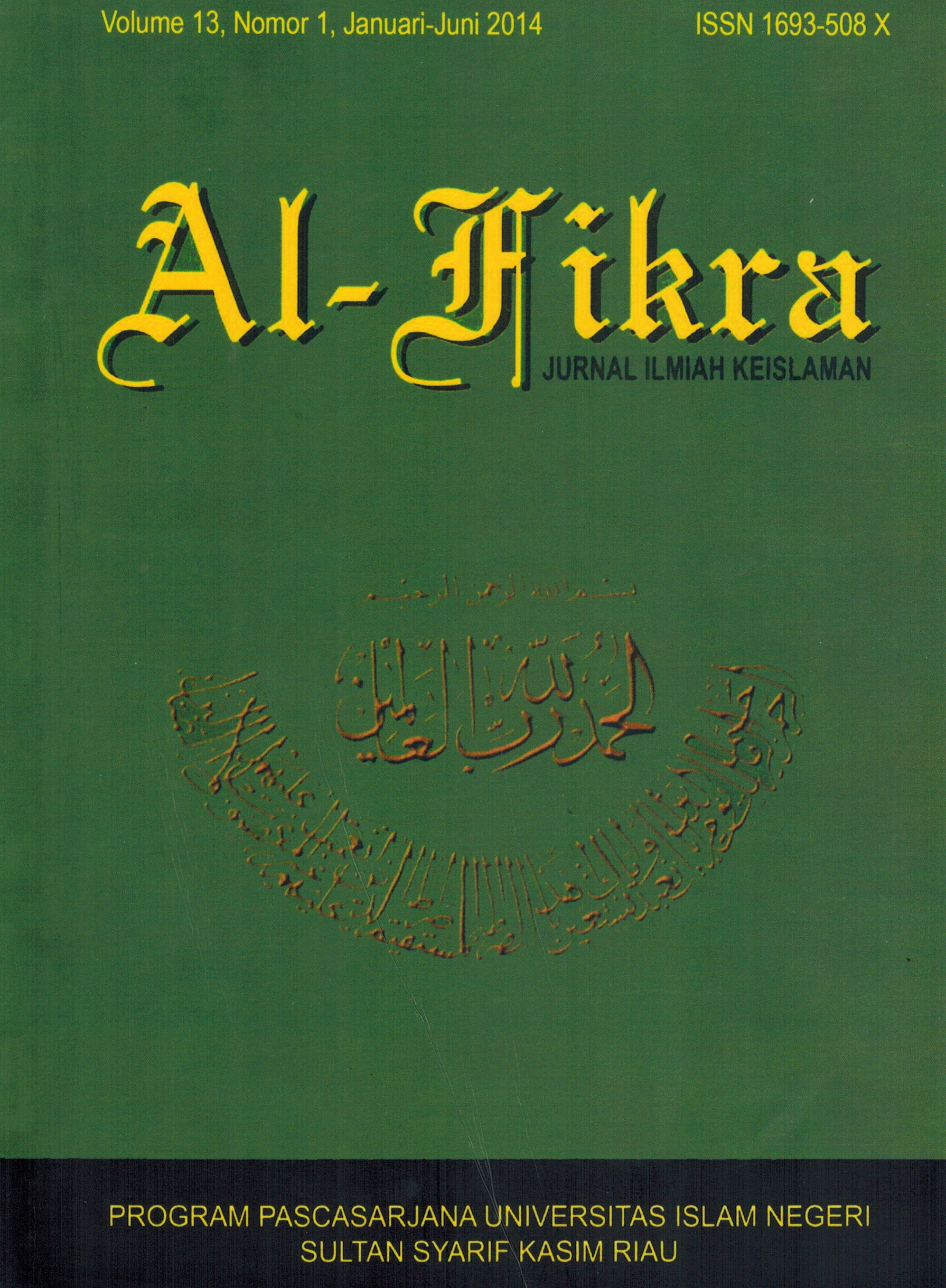AJARAN FILANTROFIS AMALANSUNNAH : SEBUAH TELA' AH KONSEPTUAL PSIKOSPIRITUAL ISLAM
DOI:
https://doi.org/10.24014/af.v13i1.3994Keywords:
Mental-kogntif Islam, Psikososial Islam, Amalan Sunnah, dan IPsIAbstract
This paper is a contribution of Islamic Psychological Inventory (IPSI) philanthropy towards Islam. Mental Measurements have nurtured Islam cognitive, Psychosocial of Islam and Sunnah Practice under the set IPSI to see the quality of the impulse-cognitive thinking, internalization and consistency of individual socio-reliqio-indioidual behavior that is based on the teachings of Islam is Islam. Filantrofi in the context of a meeting between the vertical relationship to the Khaliq with horizontal relations to their fellow creatures. Mental cognitive Islam, Islam and Practice Psychosocial Sunnah which is the fusion concept of vertical and horizontal relationships in question, estimated to be highly predictive of Islamic philanthropq. Scale-cognitive mental Islam fostered by the construction 14: monotheism, justice, deliberation, congregation, a crime, sahsiah, muamalah, the perspective of Islamic law, philosophu of knowledge of Islam, Islamic economics, Islamic maintenance, safety and health of Islam, Islamic science and Islamic history. Scale psychosocial construct that is also based 10: Khaiifah, the mission of Islam, the concept of Islamic prejudice, the concept of the life principle of
Islam, the concept of the experience of Islam, the concept of the interests of Islam, the concept of vision of Islam, the concept of
comparison, Islam, the concept of Islamic literature and Islam. When practice is based constructs sunnah is fostered deeds everyday circumcision valuable in terms of the law implementation. IPSI is one movement to produce psychometric that is based teachings of Islam, and in the same period is as an alternative psychometric psychology resulting from the west.
References
Ajzen, 1. 2002. Perceived behavioral control, self-efficacy, locus of control, and the theory of planned behavior. Journal of Applied Social Psychology, 32, 665-683.
Grisso, T., Vincent, G. &Seagrave, D. (Ed). 2005. Mental health screening and assessment in juvenile justice New York: Guilford
Kuntowijoyo 2008 Parcdigma Islam: lnierpretasiuntukaksi
Bandung: PT MizanPublika.
Mohammad Salleh. 2007. TerapiSolatTahajud, Milennia, Jakarta
Rahman, Fazlur,1999. Major themes of the Qur'an, Kuala Lumpur : Islamic Book Trust.
Rahmat Dede. 2009. Pengantar Psikologi UntukTenagaKesehatan: I1muPerilakuManusia. Surabaya: Trans Info Media.
SaifuddinAzwar. 1996. Psikologilntelegensi. Yogyakarta :PustakaBelaj ar
Sarwono, S. W. 1998. Psikologisosial; individudanteori
teoripsikologisosial. Jakarta: PT. BalaiPustaka.
Smet, A D. (Ed). 2008. Transportation accident analysis and prevention. New York: Nova Science Pulishers Inc.
Wan Mohd. Nor Wan Daud. 1991. Penjelasanbudayailmu. Kuala Lumpur: DewanBahasadanPustaka.
Wan Mohd. Nor Wan Daud. 1998. The concept of knowledge in Islam and its implications for education in developing country. London: Mansell Publishing Limited.
Downloads
Published
Issue
Section
License
Authors who publish with this journal agree to the following terms:
Authors retain copyright and grant the journal right of first publication with the work simultaneously licensed under a Creative Commons Attribution 4.0 International License that allows others to share the work with an acknowledgement of the work's authorship and initial publication in this journal.
Authors are able to enter into separate, additional contractual arrangements for the non-exclusive distribution of the journal's published version of the work (e.g., post it to an institutional repository or publish it in a book), with an acknowledgement of its initial publication in this journal.
Authors are permitted and encouraged to post their work online (e.g., in institutional repositories or on their website) prior to and during the submission process, as it can lead to productive exchanges, as well as earlier and greater citation of published work.

